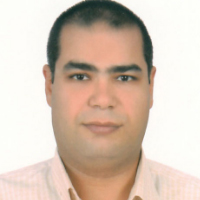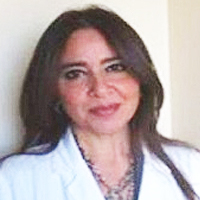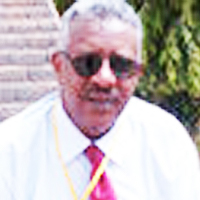Abstract
Research Article
Topical Management of chronic rhinosinusitis - A literature review
Aremu Shuaib Kayode* and Tesleem Olayinka Orewole
Published: 26 April, 2019 | Volume 3 - Issue 1 | Pages: 001-006
Chronic rhinosinusitis (CRS) is an inflammatory condition involving nasal passages and the paranasal sinuses for 12 weeks or longer [1]. It can be subdivided into three types: CRS with nasal polyposis (CRS with NP), CRS without nasal polyposis (CRS without NP), and Allergic fungal rhinosinusitis (AFRS). To diagnose CRS we require at least two of four of its cardinal signs/symptoms (nasal obstruction, mucopurulent discharge, facial pain/pressure, and decreased sense of smell). In addition, direct visualization or imaging for objective documentation of mucosal inflammation is required. CRS therapy is aimed to reduce its symptoms and improve quality of life as it cannot be cured in most patients. Thus, the goals of its therapy include the following:
Read Full Article HTML DOI: 10.29328/journal.ated.1001006 Cite this Article Read Full Article PDF
References
- Scadding GK, Durham SR, Mirakian R, Jones NS, Leech SC, et al. BSACI guidelines for the management of allergic and non‐allergic rhinitis. Clin Exp Allergy. 2008; 38: 19-42. Ref: https://tinyurl.com/y5wf8f42
- Ragab SM, Lund VJ, Scadding G. Evaluation of the medical and surgical treatment of chronic rhinosinusitis: a prospective, randomized, controlled trial. Laryngoscope. 2004; 114: 923-930. Ref: https://tinyurl.com/y4ghtjaz
- Head K, Chong LY, Piromchai P, Hopkins C, Philpott C, et al. Systemic and topical antibiotics for chronic rhinosinusitis. Cochrane Database Syst Rev. 2016; 4: CD011994. Ref: https://tinyurl.com/y6eemhdr
- Head K, Chong LY, Hopkins C, Philpott C, Burton MJ, et al. Short-course oral steroids alone for chronic rhinosinusitis. Cochrane Database Syst Rev. 2016; 4: CD011991. Ref: https://tinyurl.com/y6ksen3j
- Head K, Chong LY, Hopkins C, Philpott C, Schilder AG, et al. Short‐course oral steroids as an adjunct therapy for chronic rhinosinusitis. Cochrane Database Syst Rev. 2016; 4:CD011992. Ref: https://tinyurl.com/yxg2y3k7
- Pynnonen MA1, Mukerji SS, Kim HM, Adams ME, Terrell JE. Nasal saline for chronic sinonasal symptoms: a randomized controlled trial. Arch Otolaryngol Head Neck Surg. 2007; 133: 115-1120. Ref: https://tinyurl.com/y38k2ksx
- Wormald PJ, Cain T, Oates L, Hawke L, Wong I. A comparative study of three methods of nasal irrigation. Laryngoscope. 2004; 114: 2224-2227. Ref: https://tinyurl.com/y4ky2yd8
- Chong LY, Head K, Hopkins C, Philpott C, Glew S, et al. Saline irrigation for chronic rhinosinusitis. Cochrane Database Syst Rev. 2016; 4: CD011995. Ref: https://tinyurl.com/y52qrwz3
- Adappa ND, Wei CC, Palmer JN. Nasal irrigation with or without drugs: the evidence. Current opinion in otolaryngology & head and neck surgery. 2012; 20: 53-57. Ref: https://tinyurl.com/y2twptgc
- Keen M, Foreman A, Wormald PJ. The clinical significance of nasal irrigation bottle contamination. Laryngoscope. 2010; 120: 2110-2114. Ref: https://tinyurl.com/y2b3e9ax
- Chiu AG, Palmer JN, Woodworth BA, Doghramji L, Cohen MB, et al. Baby shampoo nasal irrigations for the symptomatic post-functional endoscopic sinus surgery patient. Am J Rhinol. 2008; 22: 34-37. Ref: https://tinyurl.com/y4lfc2fc
- Rosen PL, Palmer JN, O'Malley BW Jr, Cohen NA. Surfactants in the management of rhinopathologies. Am J Rhinol Allergy. 2013; 27: 177-180. Ref: https://tinyurl.com/y5m7pgw6
- Hardy JG, Lee SW, Wilson CG. Intranasal drug delivery by spray and drops. J Pharm Pharmacol. 1985; 37: 294-297. Ref: https://tinyurl.com/y3w7r4cs
- Aukema AA, Mulder PG, Fokkens WJ. Treatment of nasal polyposis and chronic rhinosinusitis with fluticasone propionate nasal drops reduces the need for sinus surgery. J Allergy Clin Immunol. 2005; 115: 1017-1023. Ref: https://tinyurl.com/y5b7c9do
- Harvey RJ, Debnath N, Srubiski A, Bleier B, Schlosser RJ. Fluid residuals and drug exposure in nasal irrigation. Otolaryngol Head Neck Surg. 2009; 141: 757-761. Ref: https://tinyurl.com/y635wosf
- Sachanandani NS, Piccirillo JF, Kramper MA, Thawley SE, Vlahiotis A. The effect of nasally administered budesonide respules on adrenal cortex function in patients with chronic rhinosinusitis. Arch Otolaryngol Head Neck Surg. 2009; 135: 303-307. Ref: https://tinyurl.com/y4sd8zvb
- Wang C, Lou H, Wang X, Wang Y, Fan E, et al. Effect of budesonide transnasal nebulization in patients with eosinophilic chronic rhinosinusitis with nasal polyps. J Allergy Clin Immunol. 2015; 135: 922-929. Ref: https://tinyurl.com/y4l9vbra
- Jiang RS, Su MC, Liao CY, Lin JF. Bacteriology of chronic sinusitis in relation to middle meatal secretion. Am J Rhinol. 2006; 20: 173-176. Ref: https://tinyurl.com/y3oc3yfn
- Uhliarova B, Karnisova R, Svec M, Calkovska A. Correlation between culture-identified bacteria in the middle nasal meatus and CT score in patients with chronic rhinosinusitis. J Med Microbiol. 2014; 63: 28-33. Ref: https://tinyurl.com/y6oxm2z9
- Ikeda K, Ono N, Iizuka T, Kase K, Minekawa A, et al. Bacteriologic Evaluation of Sinus Aspirates Taken by Balloon Catheter Devices in Chronic Rhinosinusitis: Preliminary Study. ORL J Otorhinolaryngol Relat Spec. 2011; 73: 271-274. Ref: https://tinyurl.com/yxftkcw5
- Weschta M, Rimek D, Formanek M, Polzehl D, Podbielski A, et al. Topical antifungal treatment of chronic rhinosinusitis with nasal polyps: a randomized, double-blind clinical trial. J Allergy Clin Immunol. 2004; 113: 1122-1128. Ref: https://tinyurl.com/y4a8x27z
- Kennedy DW, Kuhn FA, Hamilos DL, Zinreich SJ, Butler D, et al. Treatment of chronic rhinosinusitis with high‐dose oral terbinafine: a double-blind, placebo‐controlled study. Laryngoscope. 2005; 115: 1793-1799. Ref: https://tinyurl.com/y5q5hdzt
- Sacks PL, Harvey RJ, Rimmer J, Gallagher RM, Sacks R. Topical and systemic antifungal therapy for the symptomatic treatment of chronic rhinosinusitis. Cochrane Database Syst Rev. 2011; CD008263. Ref: https://tinyurl.com/yy26m8qg
- Sacks PL 4th, Harvey RJ, Rimmer J, Gallagher RM, Sacks R. Antifungal therapy in the treatment of chronic rhinosinusitis: a meta-analysis. Am J Rhinol Allergy. 2012; 26: 141-147. Ref: https://tinyurl.com/y25fsguh
- Ponikau JU, Sherris DA, Kern EB, Homburger HA, Frigas E, et al. The diagnosis and incidence of allergic fungal sinusitis. Mayo Clin Proc. 1999; 74: 877–884. Ref: https://tinyurl.com/yxv2jzjo
- Ponikau JU, Sherris DA, Weaver A, Kita H. Treatment of chronic rhinosinusitis with intranasal amphotericin B: a randomized, placebo-controlled double-blind pilot trial. J Allergy Clin Immunol. 2005; 115: 125–131. Ref: https://tinyurl.com/y2ok8fa2
- Ebbens FA, Scadding GK, Badia L. Amphotericin B nasal lavages: not a solution for patients with chronic rhinosinusitis. J Allergy Clin Immunol. 2006; 188: 1149–1156. Ref: https://tinyurl.com/y6odztj4
- Kennedy DW, Kuhn FA, Hamilos DL, Zinreich SJ, Butler D, et al. Treatment of chronic rhinosinusitis with high-dose terbinafine: a double-blind, placebo-controlled study. Laryngoscope. 2005; 115: 1793–1799. Ref: https://tinyurl.com/y5q5hdzt
- Chan KO, Genoway KA, Javer AR. Effectiveness of itraconazole in the management of refractory allergic fungal rhinosinusitis. J Otolaryngol Head Neck Surg. 2008; 37: 870–874. Ref: https://tinyurl.com/y5647sr4
- Rains BM, Mineck CW. Treatment of allergic fungal sinusitis with high-dose itraconazole. Am J Rhinol. 2003; 17: 1–8. Ref: https://tinyurl.com/y5bofn3w
- Seiberling K, Wormald PJ. The role of itraconazole in recalcitrant fungal sinusitis. Am J Rhinol Allergy. 2009; 23: 303–306. Ref: https://tinyurl.com/y6ex25qs
- Ponikau JU, Sherris DA, Weaver A, Kita H. Treatment of chronic rhinosinusitis with intranasal amphotericin B: A randomized, placebo-controlled, double-blind pilot trial. J Allergy Clin Immunol. 2005; 115: 125–131. Ref: https://tinyurl.com/y2ok8fa2
- Liang KL, Su MC, Shiao JY, Tseng HC, Hsin CH, et al. Amphotericin B irrigation for the treatment of chronic rhinosinusitis without nasal polyps: A randomized, placebo-controlled, double-blind study. Am J Rhinol. 2008; 22: 52–58. Ref: https://tinyurl.com/yxpp2mw7
- Gerlinger I, Fittler A, Fónai F, Patzkó A, Mayer A, et al. Postoperative application of amphotericin B nasal spray in chronic rhinosinusitis with nasal polyposis, with a review of the antifungal therapy. Eur Arch Otorhinolaryngol. 2009; 266: 847–855. Ref: https://tinyurl.com/y6yx7p55
- Weschta M, Rimek D, Formanek M, Polzehl D, Podbielski A, et al. Topical antifungal treatment of chronic rhinosinusitis with nasal polyps: A randomized, double-blind clinical trial. J Allergy Clin Immunol. 2004; 113: 1122–1128. Ref: https://tinyurl.com/y4a8x27z
- Hardy JG, Lee SW, Wilson CG. Intranasal drug delivery by spray and drops. J Pharm Pharmacol. 1985; 37: 294-297. Ref: https://tinyurl.com/y3w7r4cs
- Daley-Yates PT, Baker RC. Systemic bioavailability of fluticasone propionate administered as nasal drops and aqueous nasal spray formulations. Br J Clin Pharmacol. 2001; 51: 103-105. Ref: https://tinyurl.com/y4ajqdlk
- Bryant ML, Brown P, Gurevich N, McDougall IR. Comparison of the clearance of radiolabelled nose drops and nasal spray as a mucosally delivered vaccine. Nucl Med Commun. 1999; 20: 171-174. Ref: https://tinyurl.com/yxt6y6sb
Similar Articles
-
A possible Etiology and new treatment of Burning Mouth Syndrome and allied conditionSudhakar Pattanaik*. A possible Etiology and new treatment of Burning Mouth Syndrome and allied condition. . 2017 doi: 10.29328/journal.ated.1001001; 1: 001-005
-
Changes in the frequency and intensity of Tinnitus using the Suppressive Noise SpectrumMing Zhang*,Alysia Jeske,Sarah Young. Changes in the frequency and intensity of Tinnitus using the Suppressive Noise Spectrum. . 2017 doi: 10.29328/journal.ated.1001002; 1: 006-012
-
Practical implementation of the SWEEP-session of Stimulation-Registration in CI fittingPetrov SM*. Practical implementation of the SWEEP-session of Stimulation-Registration in CI fitting. . 2017 doi: 10.29328/journal.ated.1001003; 1: 013-015
-
For professionals working on the topic of cochlear implantation: Opinions of readers of “Instruction” and participants of MIMICPetrov SM*. For professionals working on the topic of cochlear implantation: Opinions of readers of “Instruction” and participants of MIMIC. . 2018 doi: 10.29328/journal.ated.1001004; 2: 001-005
-
Recent advances in pathophysiology and management of subglottic HemangiomaMohamed Khamis Tolba Mahmoud Abdalla*. Recent advances in pathophysiology and management of subglottic Hemangioma. . 2018 doi: 10.29328/journal.ated.1001005; 2: 006-007
-
Topical Management of chronic rhinosinusitis - A literature reviewAremu Shuaib Kayode*,Tesleem Olayinka Orewole. Topical Management of chronic rhinosinusitis - A literature review. . 2019 doi: 10.29328/journal.ated.1001006; 3: 001-006
-
Feasibility study on the evaluation of the effect of narrow-band CE-Chirp ASSR in the hearing field after hearing aid in hearing-impaired childrenWang Yonghua*,Xing Shuoyao. Feasibility study on the evaluation of the effect of narrow-band CE-Chirp ASSR in the hearing field after hearing aid in hearing-impaired children. . 2019 doi: 10.29328/journal.ated.1001007; 3: 007-011
-
Prevalence of disabling hearing loss in the elderlyLetícia Raquel Baraky Vasconcelos,Paula Ferraz Rodrigues,Paula Liziero Tavares,Audryo Oliveira Nogueira*. Prevalence of disabling hearing loss in the elderly. . 2019 doi: 10.29328/journal.ated.1001008; 3: 012-013
-
Impact of Community Oriented Ear Care (COEC) on national programme for control of deafness in India: A critical lookSanjeev Davey*,Anuradha Davey,Rajesh Jain. Impact of Community Oriented Ear Care (COEC) on national programme for control of deafness in India: A critical look. . 2020 doi: 10.29328/journal.ated.1001009; 4: 001-002
-
Audit of the effect of non-nasal specific scoring on the Postoperative SNOT22 questionnaireSamir Gendy*. Audit of the effect of non-nasal specific scoring on the Postoperative SNOT22 questionnaire. . 2020 doi: 10.29328/journal.ated.1001010; 4: 003-005
Recently Viewed
-
Unveiling Disparities in WHO Grade II Glioma Care among Physicians in Middle East and North African (MENA) Countries: A Multidisciplinary SurveyFatimah M Kaabi,Layth Mula-Hussain*,Shakir Al-Shakir,Sultan Alsaiari,Leonidas Chelis,Renda AlHabib,Sara Owaidah,Renad Subaie,Marwah M Abdulkader,Ibrahim Alotain. Unveiling Disparities in WHO Grade II Glioma Care among Physicians in Middle East and North African (MENA) Countries: A Multidisciplinary Survey. Arch Cancer Sci Ther. 2026: doi: 10.29328/journal.acst.1001048; 10: 001-005
-
Screening for Depressive Symptoms in Clinical and Nonclinical Youth: The Psychometric Properties of the Dutch Children’s Depression Inventory-2 (CDI-2)Denise HM Bodden*,Yvonne Stikkelbroek,Daan Creemers,Sanne PA Rasing,Elien De Caluwe,Caroline Braet. Screening for Depressive Symptoms in Clinical and Nonclinical Youth: The Psychometric Properties of the Dutch Children’s Depression Inventory-2 (CDI-2). Insights Depress Anxiety. 2025: doi: 10.29328/journal.ida.1001047; 9: 028-039
-
Penile Fracture: The “Cracking” Sound and Intra-operative Tunica Albuginea RepairAyoub Mamad*,Mohammed Amine Bibat,Mohammed Amine Elafari,Youssef Maachi,Amine Slaoui,Tarik Karmouni,Abdelatif Koutani,Khalid Elkhader. Penile Fracture: The “Cracking” Sound and Intra-operative Tunica Albuginea Repair. J Clin Med Exp Images. 2026: doi: 10.29328/journal.jcmei.1001038; 10: 001-002
-
Transumbilical Single-incision Hiatal Hernia Repair and Nissen Fundoplication in situs Inversus Totalis: A Rare Case ReportQing Cao,Chen Kang,Kang Gu,Yin Peng,Yang Lv,Xu-Zhong Ding,Peng Li*. Transumbilical Single-incision Hiatal Hernia Repair and Nissen Fundoplication in situs Inversus Totalis: A Rare Case Report. Adv Treat ENT Disord. 2026: doi: 10.29328/journal.ated.1001017; 10: 001-003
-
NAD⁺ Biology in Ageing and Chronic Disease: Mechanisms and Evidence across Skin, Fertility, Osteoarthritis, Hearing and Vision Loss, Gut Health, Cardiovascular–Hepatic Metabolism, Neurological Disorders, and MuscleRizwan Uppal,Umar Saeed*,Muhammad Rehan Uppal. NAD⁺ Biology in Ageing and Chronic Disease: Mechanisms and Evidence across Skin, Fertility, Osteoarthritis, Hearing and Vision Loss, Gut Health, Cardiovascular–Hepatic Metabolism, Neurological Disorders, and Muscle. Ann Clin Endocrinol Metabol. 2026: doi: 10.29328/journal.acem.1001032; 10: 001-009
Most Viewed
-
Impact of Latex Sensitization on Asthma and Rhinitis Progression: A Study at Abidjan-Cocody University Hospital - Côte d’Ivoire (Progression of Asthma and Rhinitis related to Latex Sensitization)Dasse Sery Romuald*, KL Siransy, N Koffi, RO Yeboah, EK Nguessan, HA Adou, VP Goran-Kouacou, AU Assi, JY Seri, S Moussa, D Oura, CL Memel, H Koya, E Atoukoula. Impact of Latex Sensitization on Asthma and Rhinitis Progression: A Study at Abidjan-Cocody University Hospital - Côte d’Ivoire (Progression of Asthma and Rhinitis related to Latex Sensitization). Arch Asthma Allergy Immunol. 2024 doi: 10.29328/journal.aaai.1001035; 8: 007-012
-
Causal Link between Human Blood Metabolites and Asthma: An Investigation Using Mendelian RandomizationYong-Qing Zhu, Xiao-Yan Meng, Jing-Hua Yang*. Causal Link between Human Blood Metabolites and Asthma: An Investigation Using Mendelian Randomization. Arch Asthma Allergy Immunol. 2023 doi: 10.29328/journal.aaai.1001032; 7: 012-022
-
An algorithm to safely manage oral food challenge in an office-based setting for children with multiple food allergiesNathalie Cottel,Aïcha Dieme,Véronique Orcel,Yannick Chantran,Mélisande Bourgoin-Heck,Jocelyne Just. An algorithm to safely manage oral food challenge in an office-based setting for children with multiple food allergies. Arch Asthma Allergy Immunol. 2021 doi: 10.29328/journal.aaai.1001027; 5: 030-037
-
Snow white: an allergic girl?Oreste Vittore Brenna*. Snow white: an allergic girl?. Arch Asthma Allergy Immunol. 2022 doi: 10.29328/journal.aaai.1001029; 6: 001-002
-
Cytokine intoxication as a model of cell apoptosis and predict of schizophrenia - like affective disordersElena Viktorovna Drozdova*. Cytokine intoxication as a model of cell apoptosis and predict of schizophrenia - like affective disorders. Arch Asthma Allergy Immunol. 2021 doi: 10.29328/journal.aaai.1001028; 5: 038-040

If you are already a member of our network and need to keep track of any developments regarding a question you have already submitted, click "take me to my Query."

















































































































































